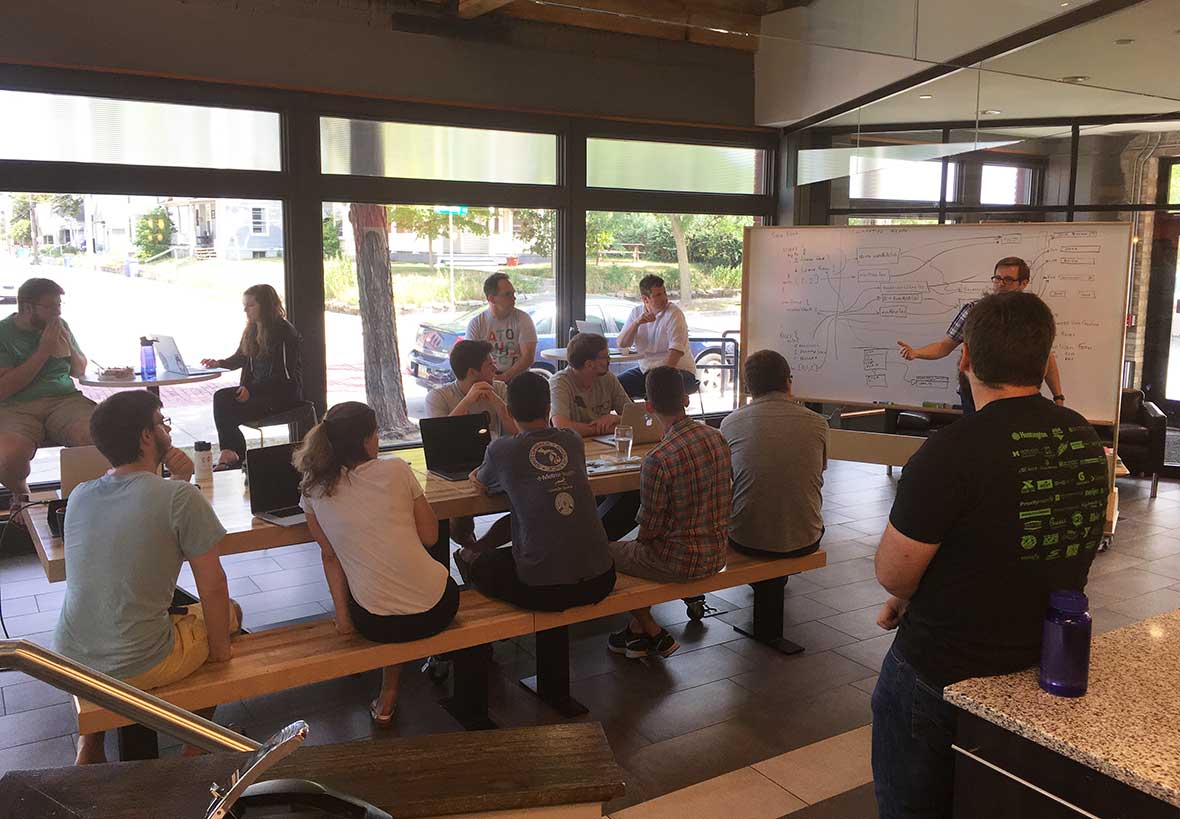In the software development industry, you frequently hear people referring to software as DRY. Unlike a dry personality, DRY software is a good thing; it stands for Do not Repeat Yourself. The idea is that if you find yourself writing the same code over an over again, you should refactor it to enable the code to be reused instead of copying it.
When we write code, we don’t like repeating ourselves, and we especially don’t like repeating our mistakes. Within a single application or a single team, it’s relatively easy to avoid repetition, but when you consider an entire company where many project teams are working simultaneously, the challenge intensifies.
How do you effectively share knowledge and lessons learned throughout a business? We’ve recently started an experiment at Atomic Object with the hope of accomplishing just that. We call it Snack Table Talks.
I know, it’s a pretty strange name and a bit of a mouthful, but the name conveys what I believe is an important reminder. In order to understand why that is, you need to know something about Atomic Object. We like snacks! In fact, in each of our offices, there is a place where fresh snacks are laid out each morning around the time of our company standup meeting.
Over time, I’ve observed that a ton of interesting conversations happen around the snack table throughout the day. People talk about what they’re working on, what they’re excited about, what frustrates them, what they like to do for fun, and so on. A great deal of knowledge and information is naturally shared this way without any prompting and without any preparation.
It got me thinking, what if we could could create a forum where these same types of conversations could happen but in a slightly more structured way? I envisioned a way for more people to get involved and contribute/benefit from the conversation. That was the inspiration behind the idea for Snack Table Talks.
The idea of knowledge-sharing presentations is not new to Atomic. We’ve had a system in place to encourage it for many years. However, we’ve had trouble gaining traction with it. People just don’t take the initiative and volunteer to present very often.
My suspicion is that there are two main things that hold people back: the time and the topic. Many of us feel like we have limited free time, and we assume that putting together a good presentation would take a lot of prep time. Also, there may be an artificially high bar for which topics are interesting or revolutionary enough to be worth presenting.
When I introduced the idea of Snack Table Talks to the company, I emphasized two main points:
- Prep time should be extremely minimal. Just like the organic talk around the snack table, the topics should be things that are relevant to you right now. If you’ve just spent the last week learning about a new technology or doing something interesting for your project, you don’t need much time to prep in order to share that information.
- Any topic is worthy. There is no bar for how interesting a topic must be; all topics are welcome.
This experiment is still pretty new to Atomic, but so far, it’s going well. In three months, we’ve had nine talks covering a wide range of topics. It’s been awesome to hear more about what people are doing, and I’m hopeful that it will continue.

